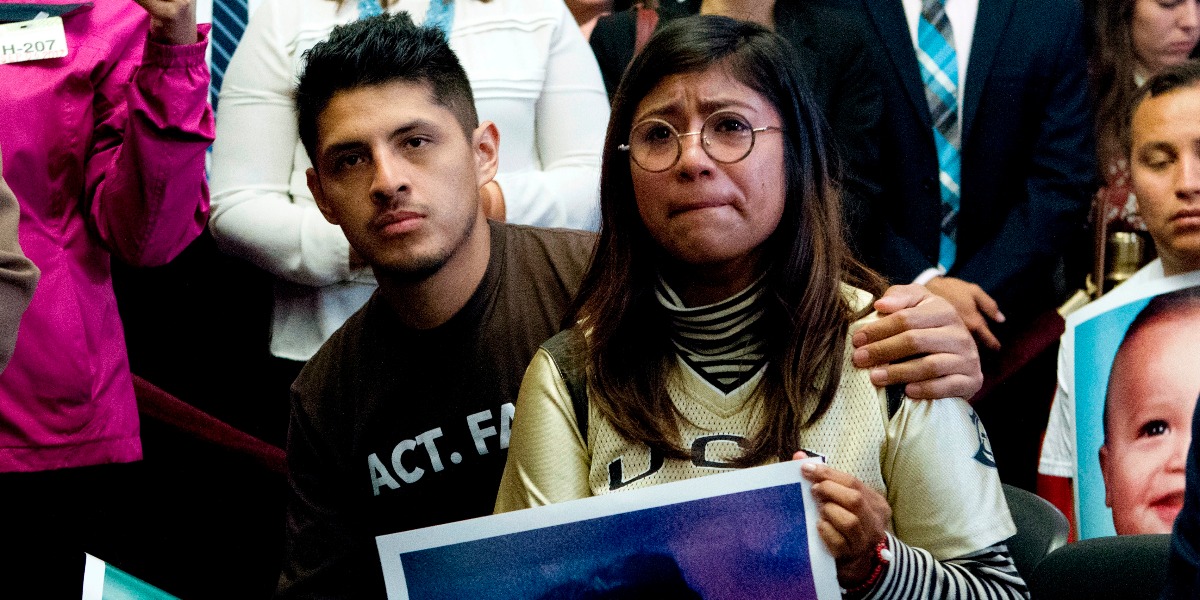By Ibis Valdés
Videos by Rare
Every generation has its cause célèbre and the DACA (Deferred Action for Childhood Arrivals) program, created in 2012, is ours. The undocumented young people protected by DACA are called Dreamers, brought to the United States as minors. About 690,000 people are currently protected under the DACA program, with 50,000 recipients residing in my home state of Florida.
Thousands of undocumented young immigrants may lose their protection from deportation if Congress does not pass a bill containing an updated version of the DREAM Act. On January 20, the government shut down for 72 hours because both parties failed to reach an agreement over the fate of DACA recipients and government funding. The tensions are high, and the stakes are higher with thousands of lives in the balance. Negotiations are tough: any mention of “amnesty” makes conservatives wary of seemingly letting people “get away with” a crime. Mentions of “border security” angers progressive bases, prompting them to accuse conservatives of being anti-immigrant and isolationist.
But whichever bill is passed will affect countless people –– people like David Rivas, age 21, who I know because he was one of our interns at the youth civic engagement nonprofit Engage Miami, where I work. He is a Dreamer who came over from Honduras as a young child in 2003 with his mother –– they stayed in the country when their tourist visas expired the following year. Known for high homicide rates and low social mobility, Honduras is now suffering a constitutional crisis over possibly illegitimate presidential election results, throwing the country into turmoil. Rivas’s mother brought him to the US to escape unchecked gang violence and severe economic turmoil.
Rivas learned he was undocumented when he was seven years old, but what that status entailed was not clear to him until he was close to graduating high school. He found many opportunities were closed off to him, including his true passion––joining the military. Undeterred, he applied and was accepted to Miami-Dade College, even though most scholarships are denied to him. He now studies international relations.
RARE POV: The war on drugs destroys communities of color – it’s time for it to end
Many Dreamers like Rivas feel frustrated that their lives are being politicized and exploited to further solidify partisan lines. He hears a lot of talk about a “path to citizenship” that hardline conservatives usually abhor and progressives call for, but there is nothing tangible he can do to prove his desire to live and work legally in the US.
During the process of negotiations, extension of DACA status and beefing up border security are frequently mentioned together as tradeoffs to satisfy both political parties. Rivas expressed deep resentment towards the common pairing of the two concepts because it makes Dreamers and their parents seem like criminals who “skipped the immigration line” to steal opportunities from American citizens. One-third to one-half of undocumented immigrants come by airplane on legal tourist visas. Not many people are able nor willing to embark on a dangerous trek across the border––in fact, illegal border crossings have declined in recent years.
The law, as it currently stands, does not address the reasons why someone may become undocumented. There are bad immigration lawyers who do a poor job of representing their clients, and the US immigration system is bureaucratic and prone to delays. Rivas explains, “My mother applied for residency soon after we arrived. However, my grandmother was given bad information about an immigration law firm where my mom was writing checks to a lawyer who already died. Her application did not move forward, which affected my chances for residency as well. We were not made aware for years, hence why we became undocumented.”
Rivas continues, “Just this year she’s advanced somewhat in the process. Seven months ago, they said by December 2017 she would get the paperwork necessary to complete her residency application. It’s near Christmas already, no response. I doubt immigration offices are working through the holidays. My DACA status expires in December 2018, for others it could be as soon as April 2018. The clock is ticking for us.”
Rivas expressed concern that the military and prisons have special interests in profiting off undocumented immigrants’ vulnerable status. He worries about the investment in advanced surveillance tools being used to intimidate and discourage immigrants from crossing the border. The prison-industrial complex profits by jailing as many people as possible and undocumented immigrants are a vulnerable target as they compromise upwards of 22 percent of inmates in the federal prison population. Private prisons are profiting handsomely, and assaults on sanctuary cities make undocumented immigrants more vulnerable.
Right now, there are two versions of the bill: the SUCCEED Act, which would provide a merit-based pathway to citizenship over a 15-year period for DACA recipients, and the SECURE Act, which would provide temporary work-permits for DACA recipients. Unfortunately, both feature a heavy focus on border and interior security. Unfortunately, including border and interior security in the negotiations seems to be the only way DACA provisions can be kept intact moving forward with such a divided Congress. President Trump himself said he’d only accept a path to citizenship for DACA recipients if funding for border security was included in the final bill.
There is a serious chance that the ideological divide may be too wide to reconcile, if a bill can even be produced at all. But people like Rivas have no other choice but to sit, wait, and pray that Congress sees them as people and not bargaining chips.
Ibis Valdés is a Young Voices advocate and a graduate of International Law & Human Rights. She is an organizer with Engage Miami, a nonprofit that elevates the youth voice in South Florida elections. Follow her on Twitter @ValdesIbis



